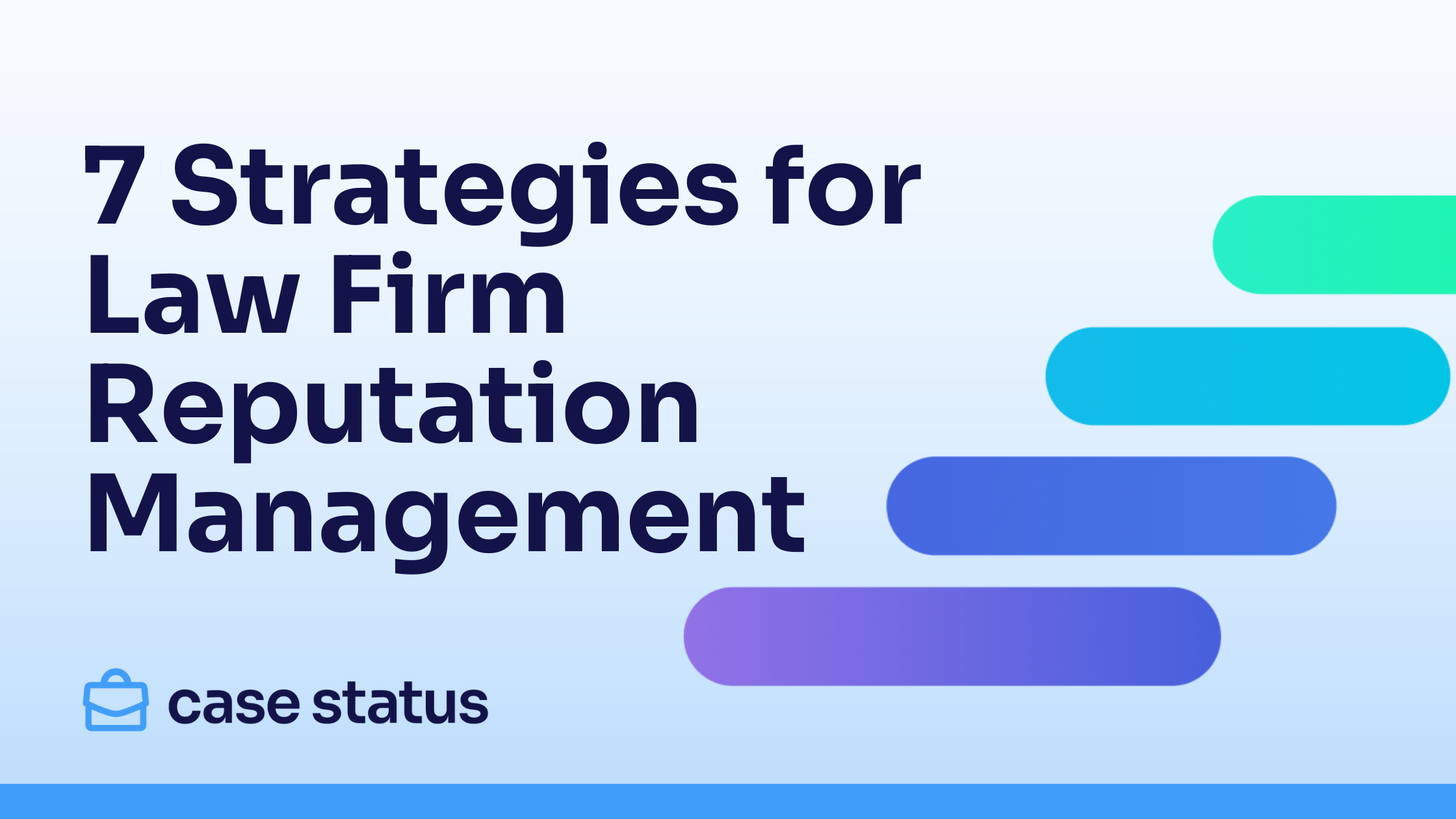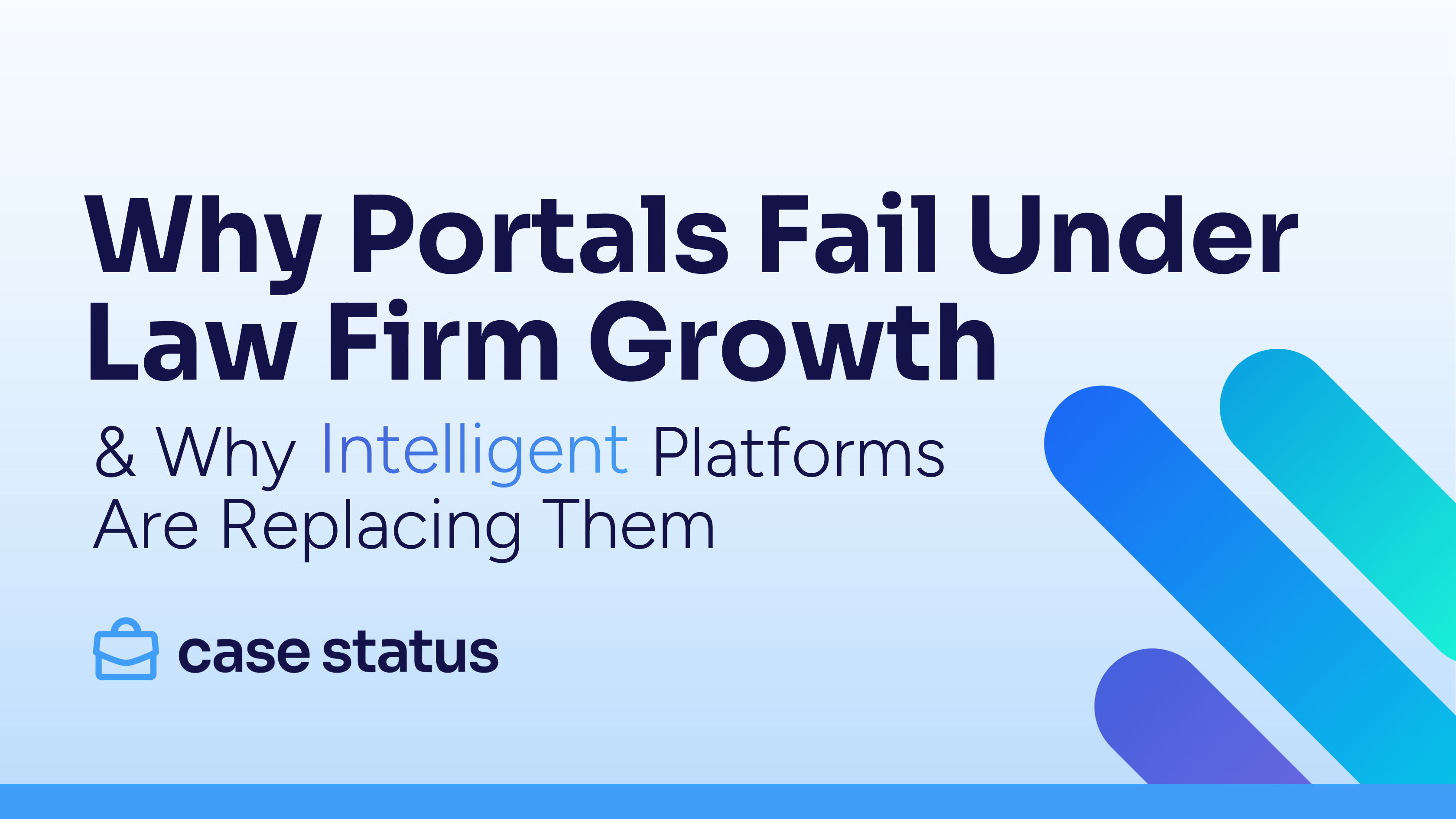
Legal software programs are the foremost way to improve any firm’s productivity. Attorneys can use them to prioritize their most meaningful tasks, automate their essential responsibilities, and enhance their entire client experience. Adopting legal software into any firm, big or small, has the potential to reduce administrative work, lower stress, enhance output, reduce error, and boost client satisfaction.
If you’re thinking about adopting law firm software, you may be wondering the best place to start. Whether it’s legal marketing software or legal automation software, one of the best places to begin is by looking into a customer relationship management (CRM) system.
What is CRM for law firms?
A CRM legal software helps a law firm manage its clients from lead to conversion. From the moment a prospect touches base with your firm, a personalized account is made that provides your firm with important details about them. The primary role is to manage the entire client intake process from start to finish, offering the greatest support to clients while minimizing non-billable work for the firm.
It’s important not to confuse a law firm CRM with law practice management software (LPMS). These are tools that are designed to automate a variety of tasks related to case matter management, billing, and administrative duties.
On the other hand, a CRM focuses exclusively on the lead-to-client process. It all starts with client intake, optimized through customized forms on your website. It can even start sooner if your CRM includes legal marketing software — it can help you build a website, manage Google ads, and optimize your site for search engines.
Once someone submits a form, your law firm is notified. You can set up an automated email to reach out to the lead, then follow up at a time that works best for them. A CRM can even assign attorneys to prospects based on the information they select on your form.
The ability to organize firms by practice area streamlines client and case management from the start; it can also prevent double bookings and ensure a swift connection from the first point of contact.
What does a CRM do?
There are many roles a CRM can perform; it is a legal automation software, a legal marketing software, and more. Using a legal CRM software creates digital client records that update in real-time. All interactions are logged into the system, so you know when someone sends a message, who they spoke to, and what their goals are.
The ability to digitize legal data and organize it efficiently helps lawyers provide a higher level of service to every client. Firms often put a great deal of effort into cases that are active, but they underinvest in the prospect phase. This can cost them thousands of dollars in business each year.
Another common oversight law firms make is the post-case relationship. Once a case is closed, how many attorneys reach out to a client periodically to thank them, wish them a happy case anniversary, or let them know they are available if they have any future needs?
Little gestures make a big difference when it comes to fostering client loyalty. A CRM can automate messages and send helpful reminders that ensure no client is ever lost or forgotten.
Additional features of a legal CRM include:
- Automation: Send emails, generate new client paperwork, and build a follow-up strategy that doesn’t take more time from your practice.
- Billing: A CRM can send invoices and record payments, so your firm can stay on top of its finances with ease.
- eSignature Software: Law firm CRMs can provide or sync with eSignature tools that allow clients to securely sign paperwork.
- Text and Video Messaging: Many CRMs incorporate meeting software that allow clients and lawyers to engage with one another through a secure platform.
- Calendaring: A CRM can automatically schedule appointments and phone calls, update calendars, and send reminders.
- Reporting: Generate data-rich reports that help you track your firm’s performance anytime.
A CRM can also work with client communication tools like Case Status to deliver even greater service; with our mobile client portal for law firms, you can provide real-time updates, request documents, and communicate through the app to reduce inbound calls and emails by up to 50%.

What is the best marketing software for law firms?
Top legal marketing software includes Clio, HubSpot, Lawmatics, Law Ruler, and Concep. Additional free tools that many lawyers use for marketing include Google Ads and Analytics, Avvo, LinkedIn, and Google Business Profile.
Finding a law CRM that includes marketing tools can further enhance your practice and help you grow. By tracking metrics such as website traffic, clickthrough rates, and session duration, your firm can get a better idea of how it’s performing and who is looking for your services.
When choosing a legal marketing software, consider how much time you have to invest in managing it. Some are more involved than others; if you are looking for a tool that is both easy-to-use and automation-driven, there are many options.
What is legal billing software?
Legal billing software is a specific type of legal software program made to handle the invoicing, payment processing, and financial reporting in one place. Rather than have to manually write, send, and record payments each month, lawyers can use legal billing software to automate the majority of their firm’s expenses.
Many CRMs include billing features, and they can even be synced with QuickBooks. From revenue tracking to expense reporting, a legal billing software is a legal finance management tool that makes running your firm easier.
Adopting legal software is easy, and it can help you improve productivity, reduce errors, and manage your operating expenses more efficiently.
Explore the features of Case Status Legal Software through a dynamic online demo on our website. Simply head to https://www.casestatus.com/demo-now to get a direct feel for how our tool efficiently organizes case management and improves communication with clients. Should you require a demo that is more specific to your area of practice, we encourage you to reach out to us. Our dedicated team is prepared to craft a demo that is tailored to your needs, highlighting the most pertinent functionalities and advantages of our tool. Experience the transformative impact of Case Status on your legal practice, whether it's through our standard web demo or guided tour.



